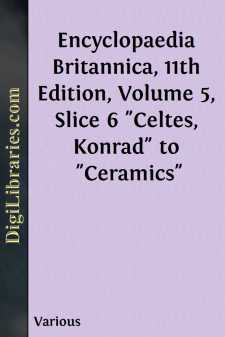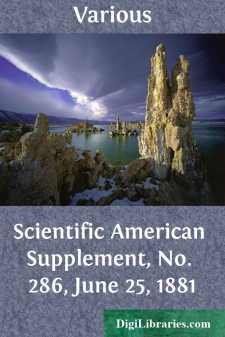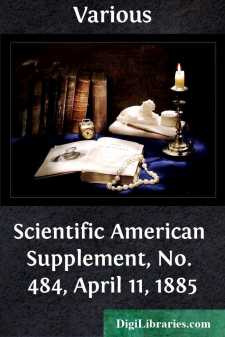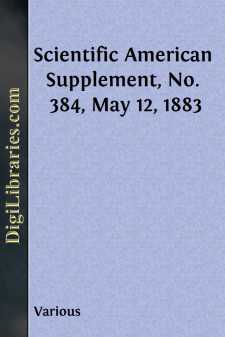Categories
- Antiques & Collectibles 13
- Architecture 36
- Art 48
- Bibles 22
- Biography & Autobiography 813
- Body, Mind & Spirit 142
- Business & Economics 28
- Children's Books 14
- Children's Fiction 11
- Computers 4
- Cooking 94
- Crafts & Hobbies 4
- Drama 346
- Education 46
- Family & Relationships 57
- Fiction 11828
- Games 19
- Gardening 17
- Health & Fitness 34
- History 1377
- House & Home 1
- Humor 147
- Juvenile Fiction 1873
- Juvenile Nonfiction 202
- Language Arts & Disciplines 88
- Law 16
- Literary Collections 686
- Literary Criticism 179
- Mathematics 13
- Medical 41
- Music 40
- Nature 179
- Non-Classifiable 1768
- Performing Arts 7
- Periodicals 1453
- Philosophy 64
- Photography 2
- Poetry 896
- Political Science 203
- Psychology 42
- Reference 154
- Religion 513
- Science 126
- Self-Help 84
- Social Science 81
- Sports & Recreation 34
- Study Aids 3
- Technology & Engineering 59
- Transportation 23
- Travel 463
- True Crime 29
Encyclopaedia Britannica, 11th Edition, Volume 5, Slice 6 "Celtes, Konrad" to "Ceramics"
by: Various
Categories:
Description:
Excerpt
CELTES, KONRAD (1459-1508), German humanist and Latin poet, the son of a vintner named Pickel (of which Celtes is the Greek translation), was born at Wipfeld near Schweinfurt. He early ran away from home to avoid being set to his father’s trade, and at Heidelberg was lucky enough to find a generous patron in Johann von Dalberg and a teacher in Agricola. After the death of the latter (1485) Celtes led the wandering life of a scholar of the Renaissance, visiting most of the countries of the continent, teaching in various universities, and everywhere establishing learned societies on the model of the academy of Pomponius Laetus at Rome. Among these was the Sodalitas litteraria Rhenana or Celtica at Mainz (1491). In 1486 he published his first book, Ars versificandi et carminum, which created an immense sensation and gained him the honour of being crowned as the first poet laureate of Germany, the ceremony being performed by the emperor Frederick III. at the diet of Nuremberg in 1487. In 1497 he was appointed by the emperor Maximilian I. professor of poetry and rhetoric at Vienna, and in 1502 was made head of the new Collegium Poetarum et Mathematicorum, with the right of conferring the laureateship. He did much to introduce system into the methods of teaching, to purify the Latin of learned intercourse, and to further the study of the classics, especially the Greek. But he was more than a mere classicist of the Renaissance. He was keenly interested in history and topography, especially in that of his native country. It was he who first unearthed (in the convent of St Emmeran at Regensburg) the remarkable Latin poems of the nun Hrosvitha of Gandersheim, of which he published an edition (Nuremberg, 1501), the historical poem Ligurinus sive de rebus gestis Frederici primi imperatoris libri x. (Augsburg, 1507), and the celebrated map of the Roman empire known as the Tabula Peutingeriana (after Konrad Peutinger, to whom he left it). He projected a great work on Germany; but of this only the Germania generalis and an historical work in prose, De origine, situ, moribus et institutis Nurimbergae libettus, saw the light. As a writer of Latin verse Celtes far surpassed any of his predecessors. He composed odes, elegies, epigrams, dramatic pieces and an unfinished epic, the Theodoriceis. His epigrams, edited by Hartfelder, were published at Berlin in 1881. His editions of the classics are now, of course, out of date. He died at Vienna on the 4th of February 1508.
For a full list of Celtes’s works see Engelbert Klüpfel, De vita et scriptis Conradi Celtis (2 vols., Freiburg, 1827); also Johann Aschbach, Die früheren Wanderjahre des Conrad Celtes (Vienna, 1869); Hartmann, Konrad Celtes in Nürnberg (Nuremberg, 1889).
CELTIBERIA, a term used by Greek and Roman writers to denote, sometimes the whole north-east of Spain, and sometimes the north-east part of the central plateau of the peninsula. The latter was probably the correct use. The Celtiberi, in this narrower sense, were not so much one tribe as a group of cantons—Arevaci, Pelendones, Berones and four or five others....












